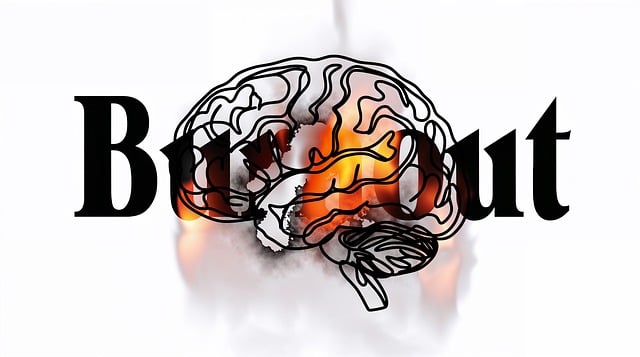Colorado Springs Crisis Intervention Team (CIT) programs are vital for managing mental health crises, particularly adjustment disorders. Based on Mind Over Matter principles, these courses equip first responders with skills to recognize, respond to, and de-escalate situations, fostering a supportive community ecosystem. By integrating Community Outreach Program Implementation strategies, CIT training connects individuals to ongoing care and resources, enhancing emotional well-being. This holistic approach benefits Colorado Springs Adjustment Disorder Therapy by empowering citizens with life-saving skills, reducing response times, and fostering early identification of mental health issues.
In the heart of Colorado Springs, crisis intervention team (CIT) training programs have emerged as a powerful tool in enhancing community mental health support. These specialized courses equip civilians with the skills needed to de-escalate and stabilize individuals facing emotional crises, particularly those struggling with adjustment disorders. By focusing on evidence-based practices, CIT programs empower participants to provide effective, compassionate care. This article explores the key components, benefits, and real-world impact of CIT training in Colorado Springs, highlighting its role in transforming mental health support for adjustment disorder therapy.
- Understanding Crisis Intervention Team (CIT) Training in Colorado Springs
- Key Components of Effective CIT Programs for Adjustment Disorder Therapy
- Benefits and Impact of CIT Training on Community Mental Health Support
Understanding Crisis Intervention Team (CIT) Training in Colorado Springs

In Colorado Springs, Crisis Intervention Team (CIT) training programs play a pivotal role in fostering mental wellness and addressing emergent situations effectively. These specialized courses are designed to equip individuals from diverse backgrounds—including first responders, healthcare professionals, and community leaders—with the skills needed to recognize, respond to, and de-escalate crises, particularly among those struggling with adjustment disorders or other mental health challenges. The Mind Over Matter Principles form the core of these training programs, emphasizing a holistic approach that combines crisis management techniques with empathy and cultural sensitivity.
The CIT training in Colorado Springs goes beyond traditional therapy by integrating Community Outreach Program Implementation strategies. Participants learn to navigate complex social environments, understand systemic barriers affecting mental wellness, and collaborate with local support networks. By embracing these comprehensive Mind Over Matter Principles and Community Outreach Program Implementation tactics, the CIT programs ensure that individuals receiving assistance are not only safely stabilized but also connected to ongoing care and resources, fostering a more robust and supportive community ecosystem for those dealing with adjustment disorders and other mental health issues.
Key Components of Effective CIT Programs for Adjustment Disorder Therapy

Effective crisis intervention team (CIT) programs for Colorado Springs Adjustment Disorder Therapy are multifaceted and tailored to address the complex needs of individuals dealing with adjustment disorders. These programs prioritize a holistic approach, incorporating various key components to foster emotional well-being promotion techniques. Trained CIT members learn compassion cultivation practices, enabling them to offer trauma support services that go beyond immediate crisis resolution.
The backbone of successful CIT training lies in fostering empathy and resilience through tailored interventions. By integrating evidence-based practices, these programs equip participants with the skills to recognize subtle cues of distress and provide appropriate, compassionate responses. This includes techniques designed to help individuals process traumatic experiences and develop healthy coping mechanisms, ultimately enhancing their overall emotional well-being.
Benefits and Impact of CIT Training on Community Mental Health Support

The implementation of Crisis Intervention Team (CIT) training programs in communities has profoundly enhanced mental health support systems, particularly in areas like Colorado Springs where adjustment disorders and other psychological crises are prevalent. CIT training equips laypeople, often community members without formal therapy backgrounds, with life-saving skills to manage severe mental health crises. This empowers bystanders to provide immediate, compassionate assistance until professional help arrives, significantly reducing response times and potentially saving lives.
Beyond direct crisis intervention, CIT training fosters a culture of resilience and early identification of mental health issues within communities. Trained citizens can recognize warning signs, initiate supportive conversations, and guide individuals towards appropriate healthcare resources, including Colorado Springs Adjustment Disorder Therapy services. Moreover, these programs contribute to effective risk management planning for mental health professionals by preparing community members to take on proactive roles in supporting those facing psychological distress, thereby complementing the work of healthcare providers and community outreach program implementations.
Crisis intervention team (CIT) training programs in Colorado Springs play a pivotal role in enhancing community mental health support. By equipping individuals with the skills to manage and de-escalate crises, these programs significantly benefit those seeking Colorado Springs adjustment disorder therapy. The key components highlighted here ensure that CIT members are prepared to provide effective, compassionate care, ultimately improving outcomes for individuals facing mental health challenges.














